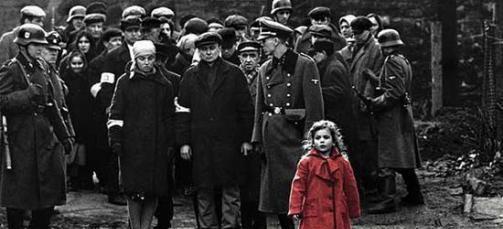When we held the coming-of-age ceremony and wedding, there were as many as fifty or sixty relatives and friends from the two families, but when my son held the coming-of-age ceremony and wedding, there were no relatives and friends to visit.
—Jewish survivor Edith? Barnett
In 1945, the vast majority of people were counting how many relatives and friends had been lost during the war, while Jewish survivors were counting how many relatives and friends were left, and the answer was often one. In the memorial album of the Jews of Berlin, examples of the martyrdom of the whole family abound,
From young children to great-grandparents, no one was spared.

In pre-war Poland and Ukraine, in dozens of large cities, Jews accounted for a sizable proportion of the population. For example, Vilnius, the capital of Lithuania before the war, was once home to 60,000 to 70,000 Jews, and by 1945, only 10 percent of Jews had survived. Jews also make up 1/3 of Warsaw's population, i.e. about 393,950 in total.
In January 1945, when the Red Army finally crossed the Vistula River into Warsaw, they found only 200 Jewish survivors in the city. Even by the end of 1945, when a small number of survivors returned to Warsaw, there were never more than 5,000 Jews in the city.
In the vast rural areas around Minsk, Belarus, the Jewish population fell from 13 percent to just 0.6 percent. In Volonia, Poland's most closed pre-war rural area, 98.5 per cent of the inhabitants of the Jewish community were killed by Italians and local forces they had fostered. Overall, at least 5.75 million Jews were killed during World War II, the worst and most systematic act of genocide in human history.
The famous Soviet writer Varisi Gross grew up in Ukraine and fled there before the German invasion. When he returned to Ukraine as a war correspondent, he found that all his relatives and friends had been killed. He was probably one of the first writers to understand the Holocaust. He wrote: There are no more Judahs in Ukraine. Poltava, Harko lost, Kremmenchug... There are no Judahs anywhere, in dozens of cities, hundreds of towns, thousands of villages, you can't see the tears of a little girl who is dark and thin, you can't hear an old woman moaning in pain, you can't see a hungry baby's face like a dish. There was only a dead silence, only a slaughter. The entire nation was brutally murdered.
In such a dark, cruel and bloody massacre, there is still a country, there are some people who bring hope, who use the brilliance of humanity to block death, who not only helped a large number of Jews to escape danger, but also preserved the seeds of civilization for Europe. Despite enormous Nazi pressure, Denmark never passed an anti-Semitic act, never stripped Jews of their property, and never expelled Jewish public officials. When the Danish public discovered that the SS intended to round up 7,200 Jews in Denmark, there was a concerted effort to secretly evacuate almost the entire Jewish community to Sweden.
The Italian populace also resisted any attempt to expel the Jews, not only in Italy itself, but also in the areas conquered by Italy. When the SS demanded that Bulgarian troops expel 49,000 Jews from their country, the king, parliament, churches, scholars, and peasants were adamantly opposed to the SS measures. Bulgarian peasants even prepared to lay on the rails to prevent Jews from being transferred out of the country, and because of this, Bulgaria was the only country with an increased Jewish population during the war.
In addition to collective behavior, there are certain individuals who would rather risk their lives than save the Jews. For example, the German industrialist Oscar? Schindler, who has long been famous all over the world, was made into the movie "Schindler's List", which has always been at the top of the Hollywood film charts. There was a Dutch priest who frankly admitted that he hated the Jews very much, but he was arrested for helping the Jews and put in a concentration camp, and he had no regrets about this.
During and after the war, the seeds of hope were desperate, bringing hope not only to the Jews but to all Europeans.